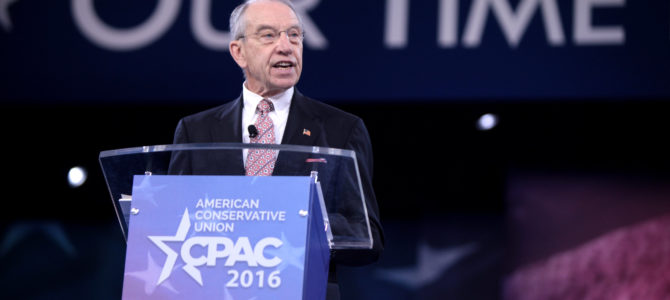Iowa Republican Sen. Chuck Grassley is pressing the Department of Justice for additional details on agency efforts to recover lost records from Special Counsel Robert Mueller’s office, which may shed light on the origins of the Crossfire Hurricane investigation probing Donald Trump’s ties to Russia.
“It appears that Special Counsel Mueller’s team may have deleted federal records that could be key to better understanding their decision-making process as they pursued their investigation and wrote their report,” Grassley wrote in a Friday letter to Attorney General William Barr and FBI Director Christopher Wray.
“Indeed, many officials apparently deleted the records after the DOJ Inspector General began his inquiry into how the Department mishandled Crossfire Hurricane. Moreover, based on this new information, the number of times and the stated reasons for the deletions calls into question whether or not it was a widespread intentional effort.”
The Iowa Republican’s letter comes a day after documents were released from a request under the Freedom of Information Act (FOIA) revealing members of Mueller’s team “accidentally wiped” data from their devices upon the investigation of their work conducting an anti-Trump probe fueled by speculation from Democrats and legacy media.
Grassley outlined a catalogue of requests in unredacted, unclassified form, including “all records from the FOIA request” Thursday with a Sept. 25 deadline.
Grassley has also demanded text messages from all government phones used by employees on the special counsel’s probe, records related to staff explanations for the lost data, and specifics on agency plans to investigate.
Mueller’s office wrapped up its investigation, which took more than two years with unlimited resources. Originally tasked with indicting the president as a Kremlin agent, in the spring of 2019 it ultimately exonerated Trump of the Democratic conspiracy.








